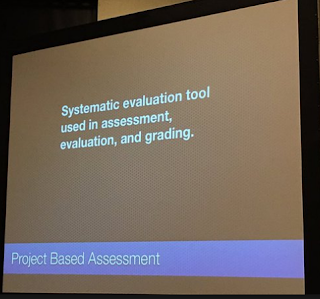- I have learned that the project-based evaluation can effectively evaluate the entire learning experience of my student while following objective per objective.
- I have learned that the content comprehension upon the project-based lesson by my students can easily be observed through the rubric results. Through their presentation of the field findings in their respective groups for example, can depict that they learn how to Peer-assess themselves and make adjustments and improvements in their learning.
- I have learned that the use of technology tools like Zunal at Zunal.com can help to create a Web-Quest and it guides me on how to write an introduction and lesson objectives, the learning strategy in form of a task, but the process gives chance to my students to select Web resource and materials which in turn helps them to work in line with the expectations from the designed assessment sheet/rubric.
- Also I have learned that project-based learning is never ending; therefore discrepancies in the whole process are inevitable. But if there are discrepancies in the WebQuest between what I intend and what actually happens during the lesson, it helps me to make appropriate revisions before the end of the lesson and what I include in here is an assessment tool/rubric so that I get to know whether my students have achieved the learning objectives of the lesson or not. The assessment/rubric has elements for assessing each learning objective.
- I actually do not feel that summative assessment like a class test is still necessary once a project is complete because the level and rate of understanding and comprehension is checked both with in the WebQuest and during the study exercise since each stage of the lesson is observed as an independent component of the lesson-this even helps me and my students on how follow constructivist approach of teaching and learning through group work.
END

No comments:
Post a Comment